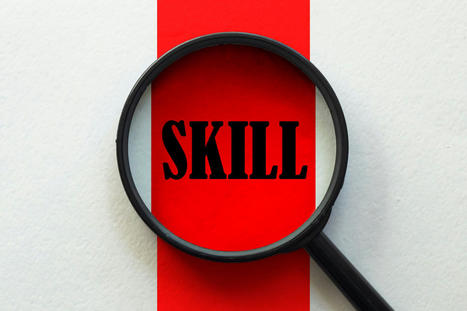 Your new post is loading...

|
Rescooped by
Susan Myburgh
from Edumorfosis.Work
October 10, 2022 5:03 AM
|
As artificial intelligence and robots continue to share work with us, almost every job is going to change – and the pace of that change will continue to accelerate as we further enter the fourth industrial revolution. But with the newest wave of technology, work will become more, not less, human. Workplaces will automate manual, repetitive tasks that can be automated, but people will still be critical for the tasks that rely on distinctly human skills that computers can’t yet replicate. The people who will be most successful in the workplace of the future will be those who cultivate soft skills that relate to how you think, work, and relate to other people.
Via Edumorfosis

|
Rescooped by
Susan Myburgh
from Edumorfosis.Work
October 3, 2022 7:45 PM
|
According to the website 80,000 Hours, the typical career is just that: 80,000 hours long. That’s an almost unfathomable amount of time. But life is long too. The typical person is alive for slightly more than 4,000 weeks, and awake and conscious for the equivalent of 3,000 weeks. When you do the basic math on 80,000 hours, you discover that the average career is roughly the equivalent of 480 sleepless weeks of labor. A little bit more math, and you realize that the typical person has five waking hours of not working for every one hour of their career.
Work is too big a thing to not take seriously. But it is too small a thing to take too seriously. Your work is one-sixth of your waking existence. Your career is not your life. Behave accordingly.
Via Edumorfosis

|
Rescooped by
Susan Myburgh
from Edumorfosis.Work
September 6, 2022 11:40 PM
|
The existing conditions alter throughout time, and this influences the workforce patterns. Trends in the workplace that increase productivity and employee engagement are ones that businesses should and should adopt.
It might be challenging to always be using the most recent model. A few years ago, open workplaces, Friday meals, standing desks, and unrestricted paid time off were unimportant to companies.
While businesses are adjusting to these new trends, COVID-19, an asteroid, hit with the earth and fundamentally altered how we operate. This change completely redesigned the workforce of the future.
Via Edumorfosis

|
Rescooped by
Susan Myburgh
from Edumorfosis.Work
August 15, 2022 6:16 PM
|
In the last couple years, employees have made some great strides in terms of flexibility, pay and quality of life—but that may be ending. Historically low levels of unemployment, employers needing to hire and the reality of the talent revolution have meant that employees could demand more. From remote working to enhanced benefits and better pay, employee expectations have increased, and organizations have largely risen to the new levels of demand.
Via Edumorfosis

|
Rescooped by
Susan Myburgh
from Edumorfosis.Work
August 9, 2022 10:54 PM
|
A recent report by the Institute for the Future, in partnership with Dell, predicts that 85% of jobs that will be available in 2030 haven’t been invented yet. Sound unlikely? I don’t think it’s as crazy as it seems, especially when we think of everything that has changed in the last ten years, like social media, artificial intelligence, and automation. The work human beings do will continue to shift as some jobs become obsolete and new jobs emerge – and the experience and skill set we'll need in the future look very different from the ones we need today.
Via Edumorfosis

|
Rescooped by
Susan Myburgh
from Edumorfosis.Work
July 16, 2022 6:03 PM
|
The metaverse is here – and if we are to believe a recent Citi report, it could generate up to $13 trillion in value for businesses around the world by 2030. This astronomical valuation is predicated on the idea that the metaverse is the name we are currently using for what will eventually become the “next level” of the internet. Today, we might log into Amazon, Facebook, or Slack for shopping, socializing, or working online. Tomorrow we will instead head for one of a new generation of metaverse services where we can do all of those things in a way that's far more immersive, interactive, and experiential. In fact, that may only be the beginning – some more “far out” theories suggest that one day we may essentially live in the metaverse – our brains hooked into digital worlds that are simply imperceptibly different from reality. Sounds ridiculous? Quite a few people think we might be there already!
Via Edumorfosis

|
Rescooped by
Susan Myburgh
from Edumorfosis.Work
July 16, 2022 6:03 PM
|
When applying for a job, there are many ways to optimize your resume. You can check the listing to see where the employer’s priorities lie in terms of experience, and make sure to highlight what’s most important to them, for example. You can include any major achievements like exceeding sales goals. And you can include a link to your LinkedIn profile.
Via Edumorfosis

|
Rescooped by
Susan Myburgh
from Edumorfosis.Work
July 4, 2022 6:02 PM
|
The machine learning boom is here, and it's only going to get bigger. When the pandemic decimated workforces and limited in-person interaction, artificial intelligence tools helped companies increase productivity. Industries such as hospitality, healthcare, and energy have all benefited from recent A.I. innovations, but there's more disruption on the horizon. Instances of businesses using automated experiences are increasing, and automation is expected to grow in both the metaverse and in how companies pursue environmental, social, & governance (ESG) initiatives, according to Pranay Agrawal, co-founder and CEO of A.I. services and analytics provider Fractal.
Via Edumorfosis

|
Rescooped by
Susan Myburgh
from Edumorfosis.Work
July 1, 2022 7:42 PM
|
Bhushan Sethi, joint global leader of People & Organization at PwC, describes the scale of this transformation: “A staggering 91 percent of business leaders in our Global CEO Survey say they need to strengthen their organization’s soft skills alongside their digital ones.” This has left organizations grappling with a series of trends that are shifting skill sets in a different—and yet exciting—direction. So, what do these trends really mean for talent transformation, and how can leaders manage and prepare for the fallout?
To examine talent transformation, it makes sense to consider three distinct types of employee. Those who create and implement technology, those who experience the technology, and those who lead the organization.
Via Edumorfosis

|
Rescooped by
Susan Myburgh
from Edumorfosis.Work
May 28, 2022 11:24 PM
|
The Great Resignation is set to continue, according to the result of a new survey by consultancy firm PwC.
The survey of 52,195 workers in 44 countries and territories suggests that one of the biggest post-pandemic trends for the future of work is set to continue, with 1-in-5 workers saying they're likely to switch to a new employer in the next 12 months.
The survey also found that 35% of employees plan to ask for a raise in the next year.
Via Edumorfosis

|
Rescooped by
Susan Myburgh
from Edumorfosis.Work
May 27, 2022 6:24 AM
|
According to Lourdes Guàrdia Ortiz, associate dean for teaching at the UOC, member of the Faculty of Psychology and Education Sciences and also a member of the Edul@b Research Group: "Traditional CVs say little about one's academic knowledge, and companies need to know more about such aspects to get a better idea of the skills developed by recent graduates. They need proof of their skills and first-hand evidence of their educational experience. Companies looking to recruit new staff want to know whether graduates can solve specific problems in different contexts, whether they can think critically in a given situation, whether they have the digital proficiency required by today's labour market or how they handle themselves when working as part of a team, to give a few examples, and they must be able to ascertain this with samples of the candidates' work."
Via Edumorfosis

|
Rescooped by
Susan Myburgh
from Edumorfosis.Work
May 10, 2022 7:11 PM
|
Workplaces are evolving — and fast. Technology is redefining roles, businesses are exploring new opportunities, and, most crucially, employee expectations are changing.
Today’s workers seek greater flexibility and mobility in their careers and aren’t afraid to change jobs to get what they want. Recent research by Robert Half found that 30% of workers plan to look for a new role to improve their chances of advancement.
Via Edumorfosis

|
Rescooped by
Susan Myburgh
from Edumorfosis.Work
May 2, 2022 3:19 AM
|
C-suite executives agree: people and business agendas have never been more intertwined. According to Mercer’s latest Global Talent Trends report, which draws on insights from C-suite executives, HR leaders and employees around the world, there is increased pressure for organizations to contribute to society in a way that reflects the values of their customers, employees and investors – to be more relatable. Employers that listen intently to their stakeholders, use data to guide action, and speak out on issues that matter make it easier for employees to decide if their organization is where they want to spend their time.
Via Edumorfosis
|

|
Rescooped by
Susan Myburgh
from Edumorfosis.Work
October 7, 2022 3:41 AM
|
Modifying the formal reward system to assess and reward people for learning more about themselves and behaving in the workplace with more joy, compassion, kindness, and respect. Companies that invest in inspiring kindness and compassion will find those qualities directed toward customers and clients, and not just fellow members in the organization.
Via Edumorfosis

|
Rescooped by
Susan Myburgh
from Edumorfosis.Work
October 3, 2022 7:44 PM
|
Everyone keeps talking about the economy these days. Interest rates are rising, inflation feels out of control, and there’s a hint of recession in the air. Yet job growth remains strong and unemployment is low. What’s really going on?
After years of study and hundreds of conversations with business leaders, I’ve come to a big conclusion. Not only are we going through an economic cycle, but the global economy has changed. And this change, which I explain below, is creating high levels of employment, job growth, and economic opportunities despite the current business cycle.
Via Edumorfosis

|
Rescooped by
Susan Myburgh
from Edumorfosis.Work
August 23, 2022 5:18 AM
|
It’s not just technical skills you need to cultivate. As we move into the new industrial revolution and the pace of change continues to accelerate, the skills you need to thrive in the workplace are shifting, as well.
In my new book, Future Skills: The 20 Skills and Competencies Everyone Needs to Succeed in a Digital World, I talk about how succeeding in the digital world also requires us to understand how technology will impact our world. We will also need to cultivate critical soft skills so we can do the things machines can’t.
Via Edumorfosis

|
Rescooped by
Susan Myburgh
from Edumorfosis.Work
August 15, 2022 6:16 PM
|
A recent report by the Institute for the Future, in partnership with Dell, predicts that 85% of jobs that will be available in 2030 haven’t been invented yet. Sound unlikely? I don’t think it’s as crazy as it seems, especially when we think of everything that has changed in the last ten years, like social media, artificial intelligence, and automation. The work human beings do will continue to shift as some jobs become obsolete and new jobs emerge – and the experience and skill set we'll need in the future look very different from the ones we need today.
Via Edumorfosis

|
Rescooped by
Susan Myburgh
from Edumorfosis.Work
July 16, 2022 6:04 PM
|
We spend a lifetime learning things, yet in today’s ever-changing economy, the amount you “unlearn” can be just as important. Learning doesn’t necessarily mean piling on new knowledge — it also calls for unlearning skills and mindsets that may have defined our careers from a different era, but now hold us back.
So, unlearning is the new learning.
Via Edumorfosis

|
Rescooped by
Susan Myburgh
from Edumorfosis.Work
July 16, 2022 6:03 PM
|
The word “soft” sometimes carries connotations of fragility, but when it’s paired with “skills,” the result is anything but weak. In fact, the U.S. Military coined the phrase “soft skills” more than 50 years ago to improve workflow and learning efficiency. Today, many experts advocate for the term “power skills” to replace “soft skills,” which can be a misnomer. And decades of research have proven time and again that the most effective leaders have highly developed soft skills.
Via Edumorfosis

|
Rescooped by
Susan Myburgh
from Edumorfosis.Work
July 4, 2022 6:03 PM
|
Hype? Hope? Hell? Maybe all three. Experts are split about the likely evolution of a truly immersive ‘metaverse.’ They expect that augmented- and mixed-reality enhancements will become more useful in people’s daily lives. Many worry that current online problems may be magnified if Web3 development is led by those who built today’s dominant web platforms
Via Edumorfosis

|
Rescooped by
Susan Myburgh
from Edumorfosis.Work
July 4, 2022 6:01 PM
|
Lee Rubin, CEO and co-founder of Confetti, a virtual culture platform, agrees: “COVID changed how people perceive their job,” she says. “The pandemic was a traumatic experience for all of us, and it led people to wonder how they're spending the hours of their days and if they’re allocating them to the right place. At the end of the day, employment is a relationship. The relationships employers build with employees have to be healthy and positive.”
Via Edumorfosis

|
Rescooped by
Susan Myburgh
from Edumorfosis.Work
June 25, 2022 8:21 PM
|
There have been bold predictions that sooner than we might think, the shift towards remote and hybrid working might soon be bolstered by real-world uses of a workplace metaverse. Adding credibility to the case supporting hybrid work arrangements are claims by Facebook parent Meta and others that virtualized, 3D spaces could enable seamless work transitions between the office and other physical environments.
Via Edumorfosis

|
Rescooped by
Susan Myburgh
from Edumorfosis.Work
May 27, 2022 6:24 AM
|
At the start of 2022, the COVID-19 crisis is still ongoing and its economic ructions continue to be felt. Disparities in progress
on vaccination are creating a divergent economic recovery that risks compounding pre-existing social cleavages and geopolitical tensions. These tensions and the economic overhang of the pandemic will make it difficult to ensure a coordinated and sufficiently rapid approach to global challenges—most notably climate change.
Vaccination and accelerated digitalization have enabled some countries to recover rapidly from the economic crisis created
by the COVID-19 pandemic, but many others are still struggling to avoid the worst consequences. At the time of writing, half of the world’s population was still unvaccinated: 1) 40% remained offline, 2) only 35% of the world’s students lived in countries where schools are fully open. 3) Some 37% of respondents to this year’s Global Risks Perceptions Survey (GRPS) believe the world will follow a fractured trajectory in the medium term, increasingly separating relative “winners” from “losers” of the COVID-19 crisis. By the time the GRPS was conducted, only 11% believed the global
recovery would accelerate over the next three years.
Economic, geopolitical, public health and societal fractures—which increase after pandemics4—risk leading to divergent and delayed approaches to critical challenges facing people and planet: accelerating the green transition in response to climate change, coordinating against heightened digital vulnerabilities, managing mobility and migration and safeguarding the next global commons space...
Via Edumorfosis

|
Rescooped by
Susan Myburgh
from Edumorfosis.Work
May 27, 2022 6:24 AM
|
There could be a dark side to the future of work. The adverse effects of the pandemic may restructure society—and not in the way we want. The rich will get richer and the middle class and poor will face grave financial and career challenges.
We’ll see the emergence of tech-savvy, Orwellian corporations spying on you. There’s a strong possibility that we’re fast heading toward a new medieval feudalistic society, as people will be thrusted unwillingly into the gig economy, contract work and forced into retirement—due to lack of alternatives. Workers will need to cope with chronic underemployment and unemployment.
Via Edumorfosis

|
Rescooped by
Susan Myburgh
from Edumorfosis.Work
May 10, 2022 7:11 PM
|
One secret to job search success is being able to see things from an employer’s point of view. More specifically, what types of skills do they need to recruit to help their business succeed?
When you know the hard and soft skills in demand for your profession, it can help you make strategic professional development decisions that will help you become more marketable. And if you plan to stay in your current role, acquiring sought-after skills can make you even more effective in your job — and help strengthen your case when you ask for a promotion or raise.
So, what are some of the top skills in demand for 2022? Read on for an overview of the skills and abilities that many employers seek in the candidates they are hiring for various roles today:
Via Edumorfosis
|






 Your new post is loading...
Your new post is loading...



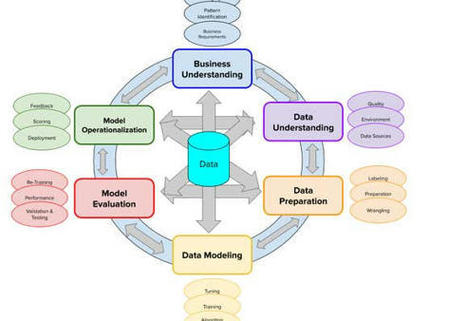




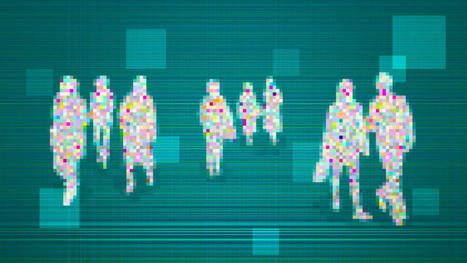







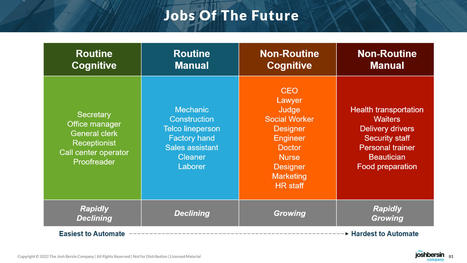






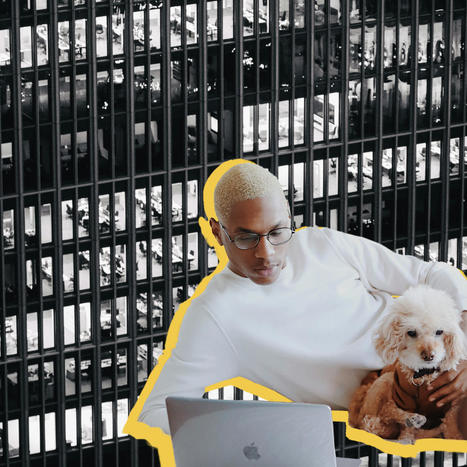

![[PDF] The Global Risk Report 2022 | Ten skills that employers want | Scoop.it](https://img.scoop.it/xf7OOeqlNiumeC7E5G5kZDl72eJkfbmt4t8yenImKBVvK0kTmF0xjctABnaLJIm9)
